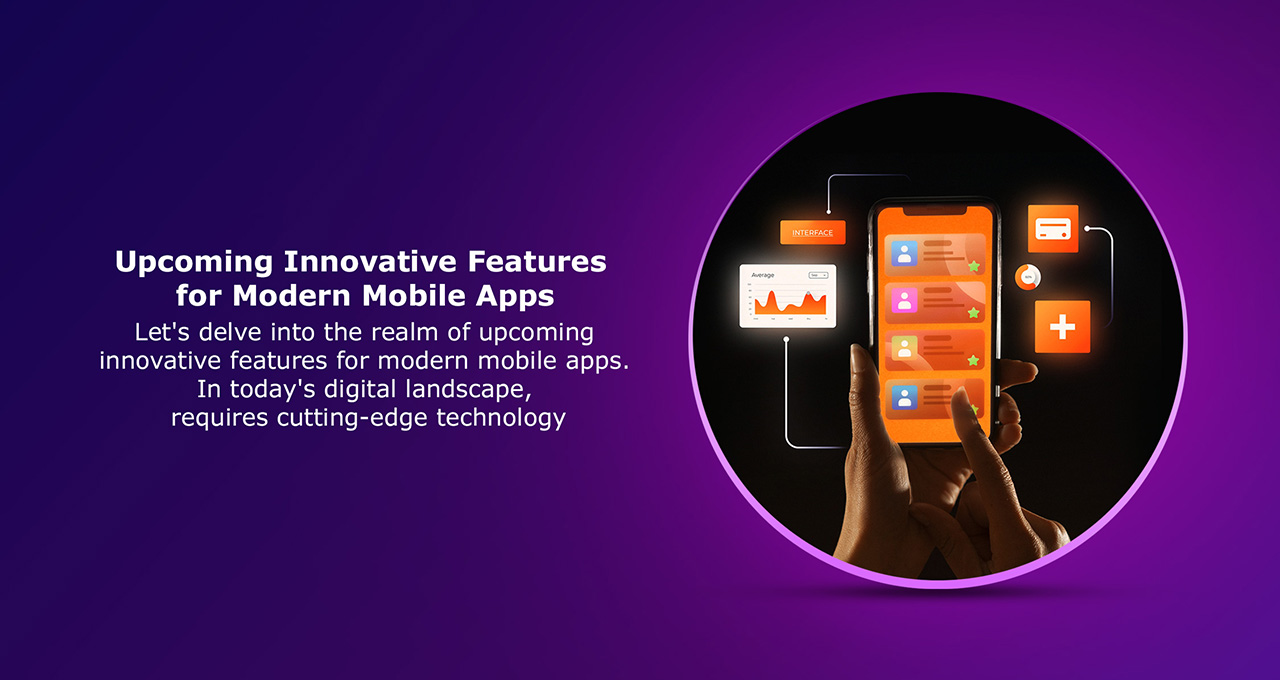
Image Credit: Image by Freepik
Are you curious about the future of mobile apps? Let’s delve into the realm of upcoming innovative features for modern mobile apps. In today’s fast-paced digital landscape, staying ahead requires embracing cutting-edge technology and user-centric design.
AI-Powered Personalization: Imagine apps that learn from user behavior, preferences, and interactions to provide personalized experiences. AI algorithms can analyze data to suggest relevant content, products, and services, enhancing user engagement and satisfaction.
Augmented Reality (AR) Integration: AR is revolutionizing mobile app experiences by overlaying digital content onto the real world. From immersive gaming to virtual try-on experiences for shopping apps, AR brings a new dimension of interactivity and engagement.
Voice-Activated Commands: With the rise of virtual assistants like Siri and Google Assistant, voice-activated commands are becoming commonplace. Future mobile apps will leverage advanced natural language processing (NLP) to enable hands-free interactions, making tasks more convenient and accessible.
Blockchain for Security and Transparency: As data privacy and security gain paramount importance, blockchain technology offers decentralized and tamper-resistant solutions. Mobile apps can integrate blockchain for secure transactions, identity verification, and transparent data management.
Gesture-Based Navigation: Touchscreens revolutionized mobile interactions, and gesture-based navigation takes it further. Intuitive gestures for tasks like swiping, pinching, and shaking can enhance user experience and make apps more intuitive to use.
Real-Time Collaboration Tools: In an increasingly connected world, mobile apps that facilitate real-time collaboration among users are gaining traction. From collaborative document editing to virtual meeting spaces, these features foster productivity and teamwork.
Machine Learning for Predictive Insights: Machine learning algorithms can analyze vast datasets to predict user behavior, trends, and preferences. Apps can leverage this capability to offer personalized recommendations, content curation, and proactive notifications.
Integration with Wearable Devices: The synergy between mobile apps and wearable devices opens new possibilities. Health and fitness apps can sync with smartwatches for real-time health monitoring, while productivity apps can leverage wearable interfaces for hands-free productivity.
Enhanced Privacy Controls: With growing concerns about data privacy, upcoming mobile apps will focus on empowering users with granular privacy controls. From consent management to data encryption, these features instill trust and transparency.
Emotional Intelligence in UX Design: Understanding user emotions and responses is crucial for designing empathetic experiences. Mobile apps with emotional intelligence can adapt interfaces, content, and interactions based on user sentiment, fostering deeper engagement and loyalty.
As we anticipate these innovative features for modern mobile apps, the key lies in balancing technological advancements with user needs and preferences. The future of mobile app development is not just about features but creating meaningful experiences that resonate with users.
Frequently Asked Questions About Innovative Features for Modern Mobile Apps.
Innovative features in modern mobile apps refer to cutting-edge functionalities and technologies that enhance user experience, improve efficiency, and offer unique capabilities not found in traditional apps.
Innovative features benefit users by providing personalized experiences, improving productivity, enhancing security and privacy, fostering collaboration, and leveraging emerging technologies like AI, AR, and blockchain for seamless interactions.
Certainly! Examples include AI-powered personalization for tailored recommendations, AR integration for immersive experiences, voice-activated commands for hands-free interactions, blockchain for secure transactions, gesture-based navigation for intuitive controls, and real-time collaboration tools for teamwork.
Innovative features are crucial in modern mobile app development as they differentiate apps in a competitive market, drive user engagement and retention, meet evolving user expectations, and enable businesses to stay ahead of technological trends.
Integrating innovative features involves understanding user needs, leveraging technologies like AI, AR, and blockchain where relevant, conducting user testing and feedback iterations, and continuously adapting to market trends and user feedback.
The cost of implementing innovative features varies based on complexity, technology stack, development resources, and scalability requirements. However, the long-term benefits in terms of user satisfaction, retention, and competitive advantage often outweigh the initial investment.
User feedback is instrumental in refining innovative features as it provides insights into user preferences, pain points, and usability issues. Continuous feedback loops and iterative development cycles help optimize features for maximum user value.
Staying updated involves following industry news, attending conferences and workshops, networking with peers and experts, exploring developer forums and communities, and engaging with technology partners and solution providers specializing in innovative app features.
Industries such as healthcare, finance, retail, education, and entertainment often benefit significantly from innovative features due to their unique requirements for personalized experiences, data security, real-time interactions, and immersive content delivery.
Future trends may include advancements in AI-driven personalization, deeper integration of AR and VR experiences, enhanced data privacy and security measures, seamless cross-platform compatibility, and novel ways of leveraging IoT and edge computing for connected experiences.

